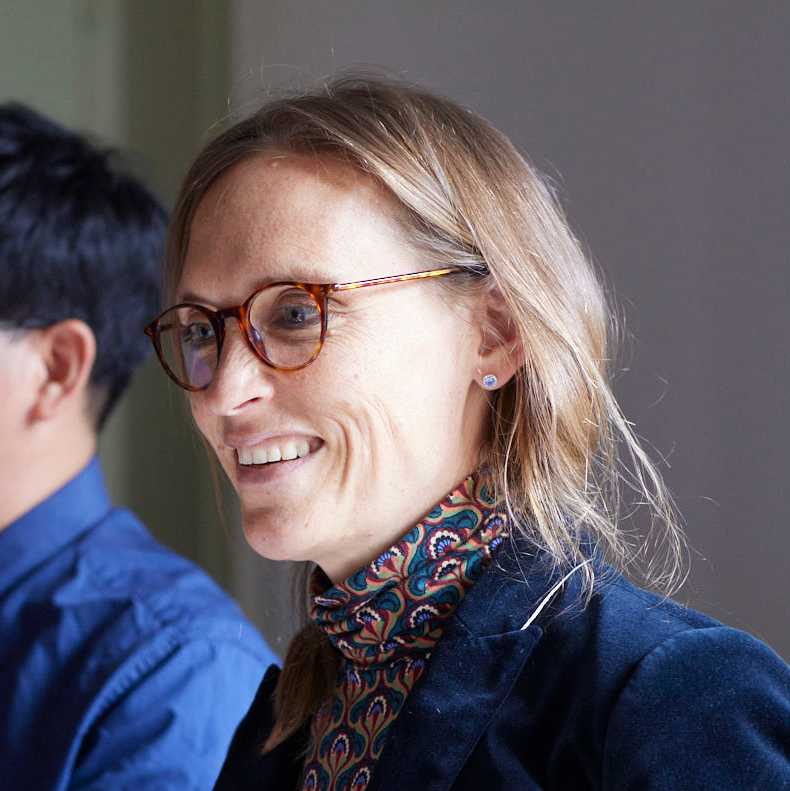
Steep Learning curves and global perspectives: insights from a Public Governance and Administration Alumna
Architecture is more than technical construction – it is a society’s footprint, merging interests like culture, politics, and the environment. This insight led Dorothy Holt Wacker to enrol in the CAS ETH in Public Governance and Administration. The programme’s interdisciplinary nature, top lecturers, and international cohort enriched her experience, providing practical skills and a broader understanding of public governance. Her advice: fully commit to the programme and plan your thesis early.
Interview with CAS ETH in Public Governance and Administration (CAS ETH PGA) Alumna Dorothy Holt Wacker
As a person with the background in architecture, what motivated you to enroll in the CAS ETH PGA at ETH Zurich Swiss School of Public Governance?
Architecture is much more than the technical construction process of buildings. Architecture is the footprint of a society and unites a very wide range of interests such as society, culture, politics, the environment, the economy and many more. The awareness of the responsibility for these far-reaching, interdisciplinary effects of architecture was the reason for me to participate in the CAS ETH in Public Governance and Administration.
How would you describe your experience during the programme?
The experience during the teaching modules was extremely enriching, due to the very interdisciplinary programme, the top lecturers and the international mix of participants. The programme being very compact left little time for the follow-up or preparation of the lectures So unfortunately, I didn't have the time I would have liked to take to go through the literature references provided.
You wrote a thesis on circular economy within the Swiss construction sector. In what ways do you believe your findings from the thesis can be applied to other sectors beyond construction to promote sustainable practices?
Yes, I believe my conclusion can be applied to all areas where human consumer behaviour comes into play. This meaning it can be applied to sectors such as food, clothing, leisure activities, travelling, living space, mobility and many others.
What are some practical insights or skills you gained from the programme that you have applied in your work?
I have gained a much broader understanding of public governance, in an international context, but also at a thematic level. For example, concerning the interplay of our built environment, climate change, migration and food security. And therefore, being able to make crosslinks when required in order to be able to explain something or justify a decision more comprehensibly.

“Having completed the CAS ETH in Public Governance has been an utmost interesting and enriching experience and I am curious about what is yet to come.”Portrait of Dorothy Holt Wacker, Alumna CAS ETH in Public Governance and Administration (Image: Sebastian Wagner-Vierhaus)
CAS ETH in Public Governance and Administration
The application window is open until 15.06.2024. You can still apply!
More information about the programme.
What advice would you give to new participants entering the programme?
I would recommend to block out the entire 2–3 weeks during the lectures, in order to be able to focus solely on the CAS. Further I would also recommend thinking about the topic of the final thesis at an early stage so that you can already benefit from the content during the lectures and discussions.
Was there a particular aspect of the programme's content that played a significant role in your decision to enroll? If so, what was it, and why did it appeal to you?
I was on the look out for an education programme that dealt with public governance from a overall and strategic point of view. Despite the programme's content as such the international an interdisciplinary aspects were the key criterias for me for choosing the CAS ETH PGA.
Can you discuss a specific module or lecture that particularly impacted your approach to public governance?
The lectures on the world food system and migration were the inputs that had a big impact on me. And the conclusion that points to the climate or climate change, which is too directly related to my professional activity.
Dorothy Holt Wacker
"I was born in Switzerland and grew up in Berne, Geneva and London. After having studied architecture in Zürich I then worked as an architect and urban planner in both Switzerland and Scotland. Moving on to larger scale planning projects brought me in touch with a very wide range of stakeholders. My understanding of architecture became more comprehensive and I realised what responsibility the decision-makers involved have in these very early phases of the planning process. This applying particularly to the role of the public sector, being non-profit orientated and having to represent the needs of politics while safeguarding the interests of a country and it's society in a long-term and hence sustainable way.
I therefore took on a role within the Swiss Federal Office of buildings and logistics, which provides and maintains all required built infrastructure the country requires. This covering the big variety of themes coming from all seven ministries and resulting in a very heterogeneous real estate portfolio. Having had various roles within the public real estate management I am currently Head of Program- and Projectdevelopment and deputy Head of Real Estate Management at the Federal Swiss office for buildings and logistics. And having completed the CAS ETH in Public Governance and Administration has been an utmost interesting and enriching experience and I am curious about what is yet to come."